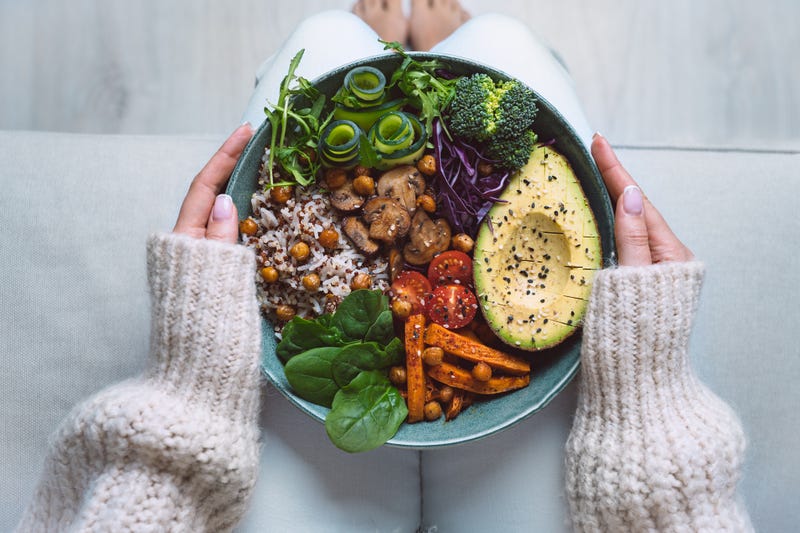
Healthy eating shouldn’t feel like cracking a secret code, but with all the different info out there, it can definitely seem that way. From social media “wellness hacks” to celebrity diet trends, we’re constantly bombarded with confusing advice that can actually do more harm than good.
The truth is, good nutrition isn’t about cutting out entire food groups or chasing the latest fad. It’s about balance, moderation, and understanding what your body needs. To help clear things up, a bunch of registered dietitians were asked to bust some of the most common (and stubborn) nutrition myths still floating around. Here’s what the experts say you can stop believing right now:
Carbs Are Bad for You: Carbs have unfairly been branded the enemy thanks to diet fads. But they’re actually your body’s main energy source, especially for your brain. The key is to choose complex carbs like whole grains, fruits, and veggies instead of refined ones like white bread or pastries.
Healthy Eating Costs a Fortune: You don’t need to drain your wallet to eat well. Dietitians suggest buying in-season produce and stocking up on frozen or canned fruits and veggies, which are just as nutritious. Planning meals around sales can also make healthy eating affordable and sustainable.
Seed Oils Are the Enemy: A seed oil is an oil like sunflower, canola, or corn oil. It comes from the seed of a plant and there are some claims that seed oils cause inflammation, but the truth is more nuanced. These oils contain both omega-6 and omega-3 fatty acids, which help balance inflammation and support overall health. They’re also cost-effective and a healthier choice than animal fats high in saturated fat.
All Processed Foods Are Evil: Not all processed foods are bad. Sometimes they’re simply convenient and budget-friendly. A frozen pizza, for example, can become a balanced meal when paired with a side salad or extra veggies. It’s all about moderation and smart pairing, not complete avoidance.
Skipping Meals Helps With Weight Loss: Skipping meals might sound like a shortcut, but it usually backfires. It can slow your metabolism and make you more likely to overeat later. Instead, aim for balanced, consistent meals with plenty of protein and fiber to keep your hunger and your energy steady.
Gluten-Free Means Healthier: Unless you have celiac disease or a gluten intolerance, there’s no need to ditch gluten. Many gluten-free products are actually more processed and less nutritious. It’s smarter (and tastier) to focus on whole, balanced meals instead of following gluten-free hype.
A Calories Is Just A Calorie: Technically, a calorie is a calorie…but where it comes from matters. One hundred calories from avocado or chicken provides far more nutrients than the same amount from ice cream. Quality counts just as much as quantity when it comes to fueling your body. BTW, most experts would agree that if you WANT ice cream once in a while, do it! Everything in moderation and live life to the fullest!
